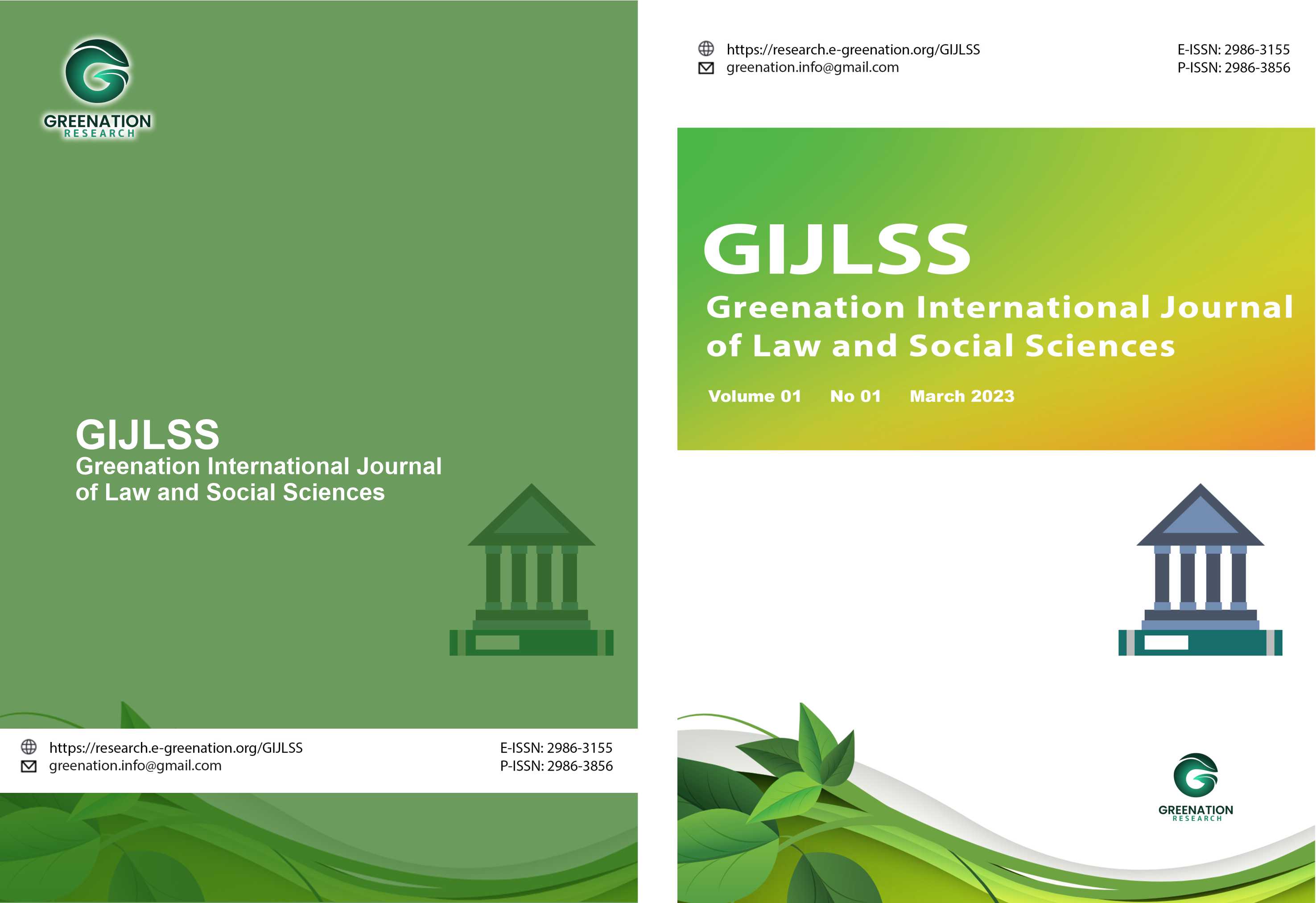Legal Dynamics of Handling Transnational Cybercrime Based on International Legal Principles
DOI:
https://doi.org/10.38035/gijlss.v3i2.496Keywords:
Cybercrime, Transnational, International LawAbstract
Cyber law enforcement at the international level faces complex challenges due to differences in jurisdiction and rapid technological developments. The study examines the significance of bilateral and multilateral cooperation in strengthening the effectiveness of cyber law enforcement, both through agreements between countries and coordination with international organizations such as INTERPOL and Europol. In addition, investment in cybersecurity technology, increasing human resource capacity, and collaboration between governments and the private sector are crucial factors in strengthening resilience to cyber threats. The role of technology companies is increasingly significant in developing more sophisticated security systems and supporting public education on data protection. With an integrated strategy, this study emphasizes the need for a holistic approach in dealing with cybercrime so that the investigation and law enforcement process can run more effectively and be coordinated globally.
References
Ardianto, R. (2024). Transformasi digital dan antisipasi perubahan ekonomi global dalam dunia perbankan. MARAS: Jurnal Penelitian Multidisiplin, 80-88.
Arifah, D. A. (2011). Kasus cybercrime di indonesia. jurnal Bisnis dan Ekonomi .
Bainus, A. (2023). Hubungan Internasional Digital (Digital International Relations). Intermestic: Journal of International Studies, 1-18.
Budiyanto. (2025). Pengantar Cybercrime dalam Sistem Hukum Pidana di Indonesia. Banten: Sada Kurnia Pustaka.
Cahyadi, I. (2018). Tata kelola dunia maya dan ancaman kedaulatan nasional. Jurnal Politica Dinamika Masalah Politik Dalam Negeri dan Hubungan Internasiona.
Hidayat, K. S. (2024). Efektivitas Peran ASEAN Dalam Penanganan Kudeta Myanmar Tahun 2021. Journal of Global Perspective, 72-84.
Hindarwati, E. N. (2024). Inovasi Bisnis: Membangun Keunggulan Bersaing di Era Digital. Yogyakarta: Green Pustaka Indonesia.
Iskandar, B. (2021). Kebijakan Formulasi Hukum Pidana Tentang Penanggulangan Tindak Pidana Terorisme Siber (Cyber Terorism) Di Indonesia. Jurnal Hukum Ius Publicum , 119-138.
Mudjiyanto, B. (2024). endensi politik kejahatan dunia maya. JIKA (Jurnal Ilmu Komunikasi Andalan), 26-51.
Pakarti, M. H. (2023). Pengaruh Perkembangan Teknologi Terhadap Perlindungan Privasi Dalam Hukum Perdata. SULTAN ADAM: Jurnal Hukum dan Sosial , 204-212.
Pangestika, E. Q. (2024). Penerapan Prinsip Hukum Internasional Dalam Penegakan Hukum Terhadap Kejahatan Siber Dan Serangan Siber. Jurnal Review Pendidikan dan Pengajaran (JRPP), 5782-5788.
Pangestika, E. Q. (2024). Penerapan Prinsip Hukum Internasional Dalam Penegakan Hukum Terhadap Kejahatan Siber Dan Serangan Siber. Jurnal Review Pendidikan dan Pengajaran (JRPP), 5782-5788.
Rahmawati, I. (2017). Analisis manajemen risiko ancaman kejahatan siber (cyber crime) dalam peningkatan cyber defense. Jurnal Pertahanan dan Bela Negara, 35-50.
Saramuke, S. S. (2025). Ancaman Keamanan Siber dan Peran Aktor Non-Negara di Dunia Digital. Syntax Idea, 141-152.
Sarjito, A. (2024). Geodefense Konsep Pertahanan Masa Depan. Bandung: Indonesia Emas Group.
Tobing, C. I. (2024). "Globalisasi Digital Dan Cybercrime: Tantangan Hukum Dalam Menghadapi Kejahatan Siber Lintas Batas. Jurnal Hukum Sasana, 105-123.
Wahyuningsih, S. E. (2016). Kebijakan Penegakan Hukum Pidana Terhadap Penanggulangan Money Laundering Dalam Rangka Pembaharuan Hukum Pidana Di Indonesia. Jurnal Pembaharuan Hukum, 46-56.
Wangke, H. (2021). Diplomasi digital dan kebijakan luar negeri Indonesia. Jakarta: Yayasan Pustaka Obor Indonesia.
Wati, D. S. (2024). Dampak Cyber Crime Terhadap Keamanan Nasional dan Strategi Penanggulangannya: Ditinjau Dari Penegakan Hukum. Jurnal Bevinding , 44-55.
Downloads
Published
How to Cite
Issue
Section
License
Copyright (c) 2025 Annisa Erikha

This work is licensed under a Creative Commons Attribution 4.0 International License.
Copyright :
Authors who publish their manuscripts in this journal agree to the following conditions:
- Copyright in each article belongs to the author.
- The author acknowledges that the Greenation International Journal of Law and Social Sciences (GIJLSS) has the right to be the first to publish under a Creative Commons Attribution 4.0 International license (Attribution 4.0 International CC BY 4.0).
- Authors can submit articles separately, arrange the non-exclusive distribution of manuscripts that have been published in this journal to other versions (for example, sent to the author's institutional repository, publication in a book, etc.), by acknowledging that the manuscript has been published for the first time at GIJLSS.























